Mangaluru, Sep 22: Ibrahim Musliyar Bekal, a prominent Sunni cleric of coastal Karnataka and the Khazi of Udupi district has called upon the madrasa students not to ignore the material education.

Inaugurating the 20th anniversary of Dakshina Karnataka Sunni Centre (DKSC), Ibrahim Musliyar said that one should acquire material education along with religious education.
He said that DKSC was formed two decades ago by a group of visionary scholars and leaders with an intention to give more priority to education of Muslim children. “It has been moving on the right direction and achieved its cause,” he said.
Delivering the keynote address Abdul Azeez Darimi, Khatheeb of Chokkabettu mosque, exhorted the people to take care of the health' of the society.
Communal hatred is one of the dangerous diseases of the society. It is our responsibility to eradicate such diseases through spreading knowledge,' he said.
Abdul Rasheed Zaini, general secretary, Markazul Huda Kumbra, presented the message of DKSC.
Awards
On the same occasion former education minister and Beary stalwart B A Mohideen was conferred with the DKSC lifetime achievement award.
DKSC goodwill awards were conferred on educationist Dr M Mohan Alva, industrialist Abdul Rawoof Puthige and UC Poulos for the relentless efforts to spread communal harmony.
Sewing machines
B Ramanath Rai, the district in charge minister for Dakshina Kannada, who was one of the chief guests, distributed sewing machines to 20 odd women on behalf of DKSC.
On the same occasion 20 educational institutions were awarded and 20 clerics who served for over 20 years in any one mosque were felicitated.
Thwaka Ahmed Musliyar, Khazi of Dakshina Kannada offered dua. Syed Atakoya Thangal Kumbol, presided over the event. Mumtaz Ali, reception committee president, welcomed. UD Abdul Hameed, DKSC working president proposed vote of thanks.
UT Khader, Y Mohammed Kunhi, SM Rasheed Haji, Zakariya Jokatte, Ibrahim Kodichal were present among others.
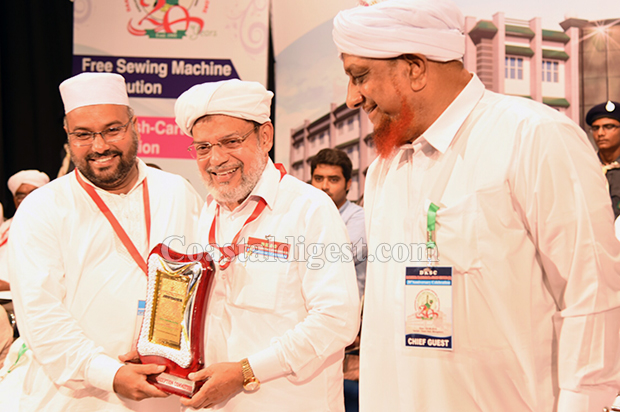
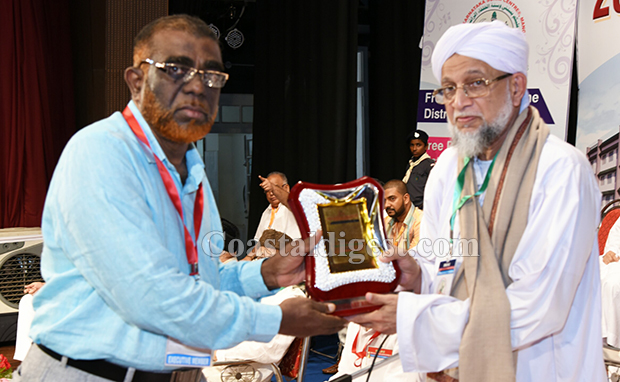
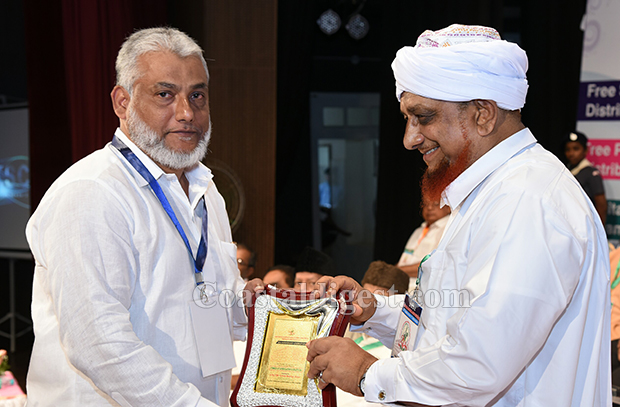
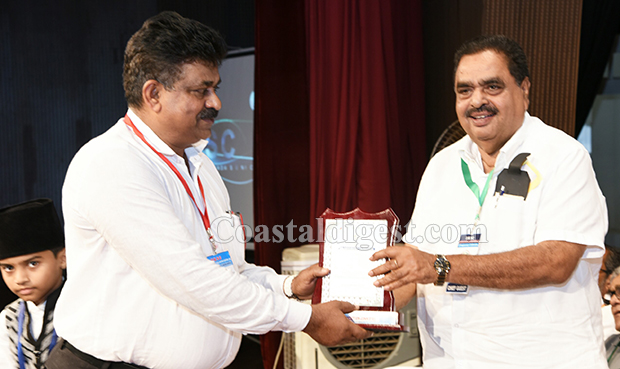
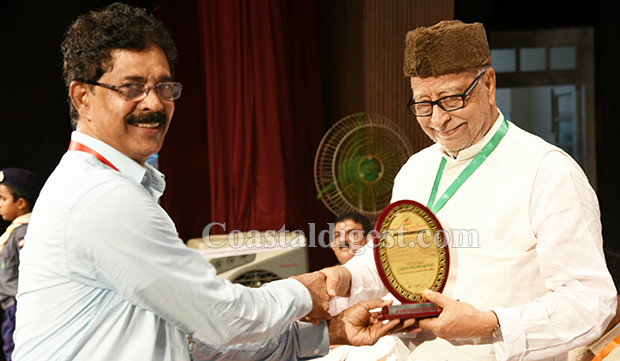
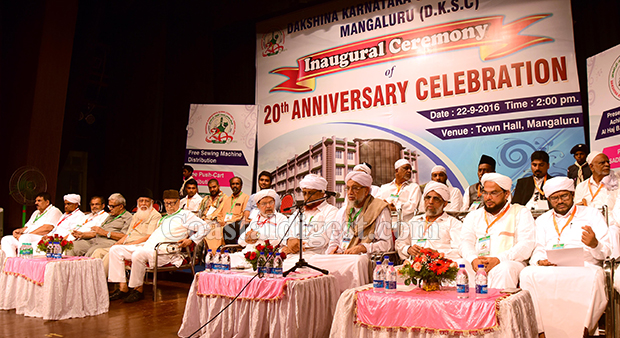
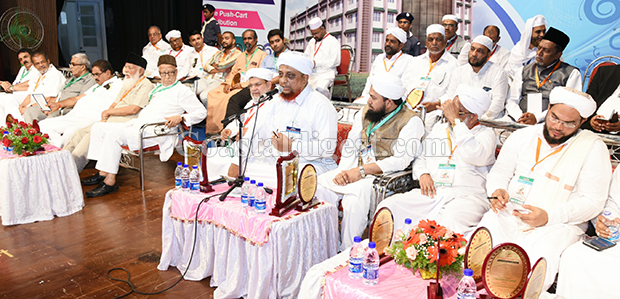
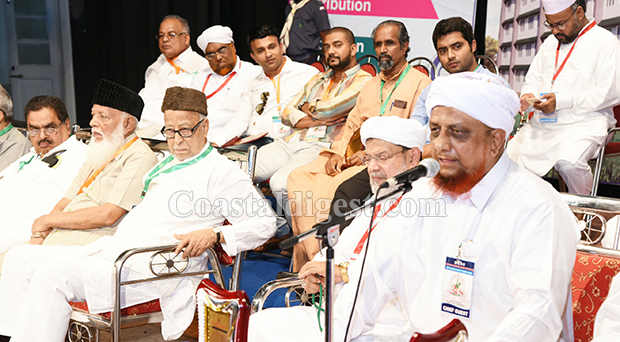
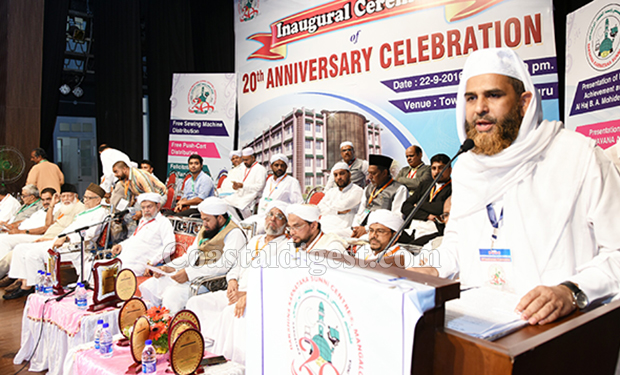
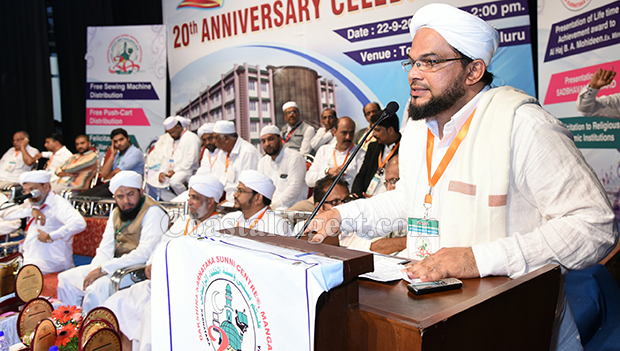
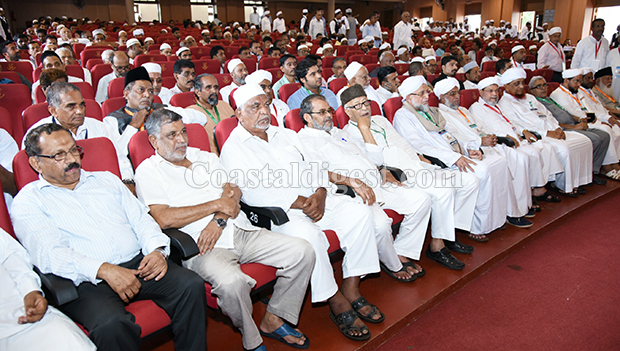
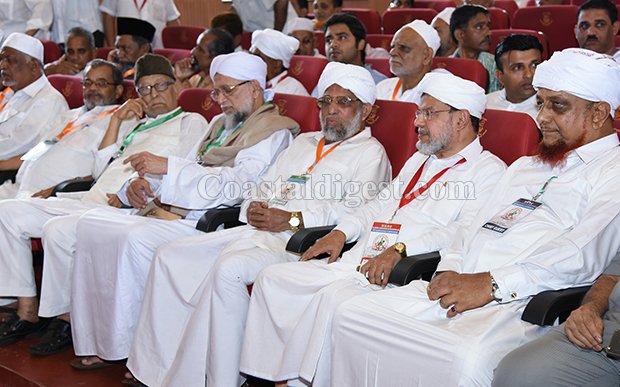
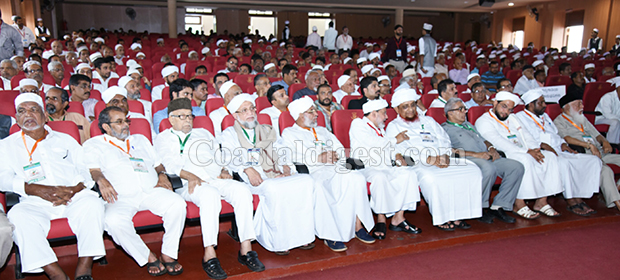
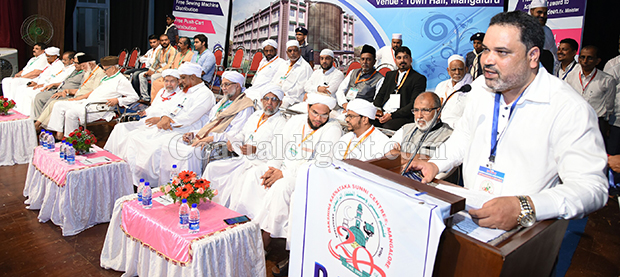
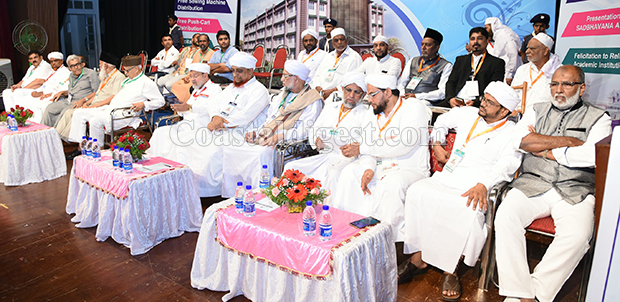
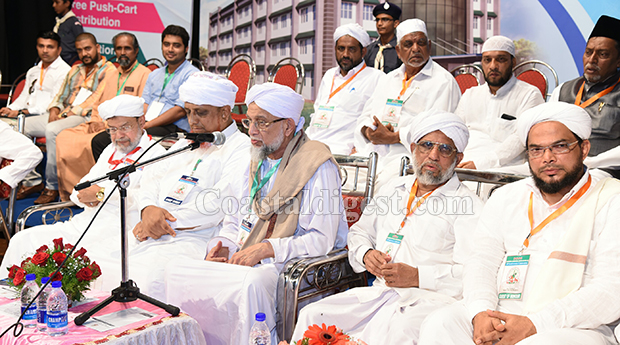
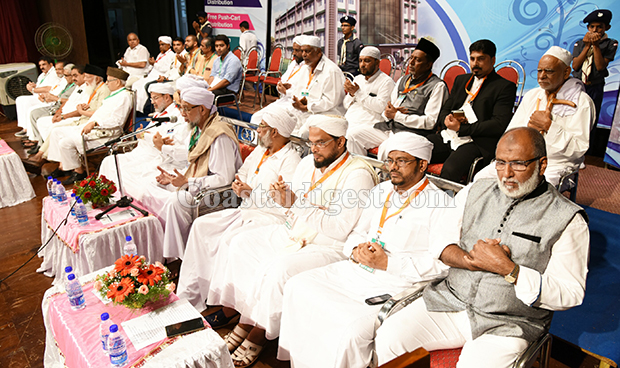
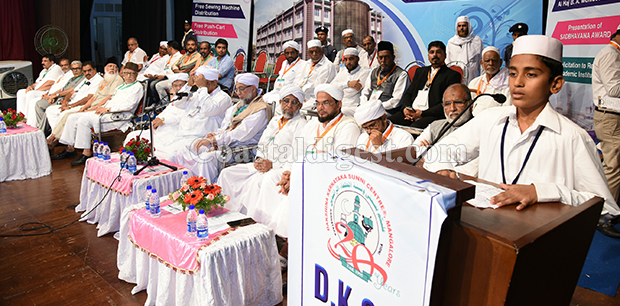

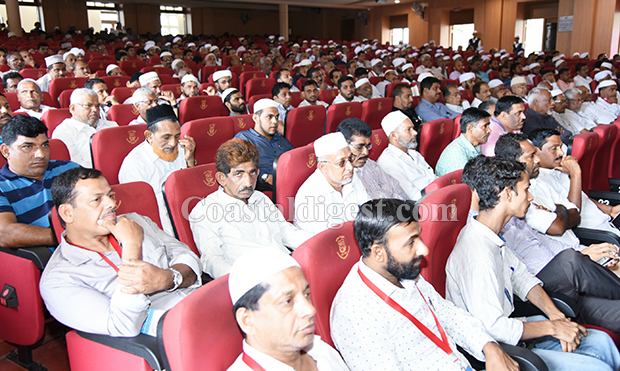
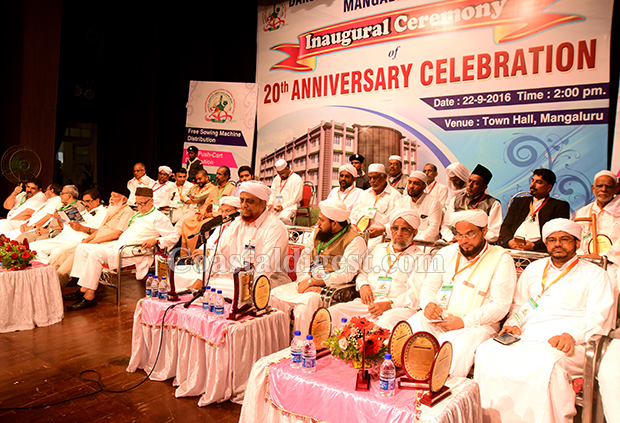




Comments
A million thanks to CD team for the nice coverage. DKSC is a mammoth Organisation in GCC countries Sand I really salute them for arranging a much awaited program having all sections of SUNNIS associated together in SINGLE dias. This can be achieved only by DKSC. 5 points program they released during the inaugural function was very superb. Keep it up.
Masha Allha Dksc zindhabaad good coverage hats off CD jazhakallha kair C D groups
Good coverage. nice photos and report. thanks a lot CD
Salams to all education is a must to know something so that it becomes a means to earn our livelyhood and be aware of our duties and environment in general religion is a must and a guidance for right living knowing our creator and what he expects from us it helps In banishment of ignorance and blindly following powerful religious clergy god-men and political power.
Add new comment